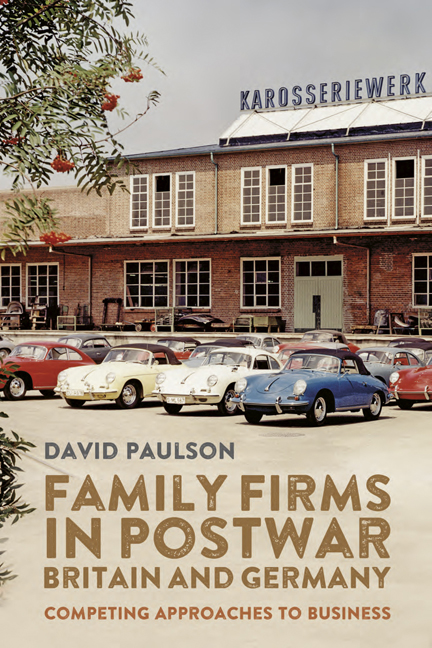4 - Recruitment and Training
Published online by Cambridge University Press: 10 January 2024
Summary
Funding was of no value to a company unless it had adequate staff, and for some observers, the quality of personnel was the key differentiator between post-war British and German business performance. In a 1988 report the Confederation of British Industry (CBI) concluded that British companies were less productive than the similar German companies which they investigated. They found, however, that R&D expenditure was not significantly less than in West Germany; plant and machines were no older; product design was not noticeably inferior. Instead, the CBI concluded that “the only area where our West German companies retain a clear-cut advantage is in the educational level attained by their employees.” Whereas 52% of German workers had a post-secondary education, only 18% of their British counterparts had; to make matters worse, the British workers had “had an inferior secondary education in the first place, particularly in subjects of a technical nature.” Furthermore, “not to be outdone by their workers, UK managers are also less qualified than their German counterparts.”
Alfred Chandler argues that German universities and technical education were a key enabling factor in Germany's economic development from the beginning of the twentieth century, “providing the best technical and scientific training in the world”, which “pioneered in institutionalizing the acquisition and transfer of knowledge.” Whereas in Britain in 1913 there were only 1129 students of engineering in all English and Welsh universities, there were 16,568 engineering students just in Germany's Technische Hochschulen, without considering its universities. Engineering training was not the only differentiator. In international trade, for all Britain's success over centuries, “it was generally believed that German commercial education was superior to that available in Britain”: embarrassingly, “Anglo-German merchants were in the vanguard of the movement to improve technical education in England.”
The educational historian Michael Sanderson sees evidence of educational failings across all areas of business. In his Education and Economic Decline in Britain, 1870 to the 1990s he argues that there was no sustained success in any educational initiative after 1914 which effectively allowed Britain to compete comprehensively against Germany and other leading economies. Sociologist Christel Lane analyses the system of vocational education and training which existed in both countries during the 1980s, concluding that “in Germany industrial training [was] regarded as a matter of public interest and as a valuable societal resource”.
- Type
- Chapter
- Information
- Family Firms in Postwar Britain and GermanyCompeting Approaches to Business, pp. 63 - 108Publisher: Boydell & BrewerPrint publication year: 2023

